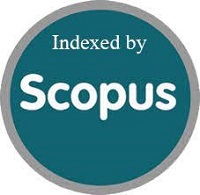Measuring the Teacher's Sense of Efficacy Scale for Teachers of Children with Special Needs in Indonesia
DOI:
https://doi.org/10.15408/jp3i.v14i1.40028Keywords:
confirmatory factor analysis, teacher self - efficacy in teaching, teacher 's sense of efficacy, validationAbstract
This research aims to test the validity and analysis of the Teacher's Sense of Efficacy Scale (short form) measurement tool for teachers of children with special needs in Indonesia. In this study, researchers tested three dimensions developed by Tschannen-Moran and Hoy (2001) for measuring teaching efficacy: Efficacy in Classroom Management, Efficacy in Student Engagement, and Efficacy in Instructional Strategies, with 12 items. The research subjects were 301 teachers of children with special needs. Among the subjects are 225 female and 76 male teachers, with a median age of 26-35. The sampling method utilised in this study is purposive sampling. The data analysis method used in this research is confirmatory factor analysis (CFA). The analysis results show a GFI value of 0.9 97; CFI 0.930; TLI 0.907; RNI 0.930; SRMR 0.044; and RMSEA 0.082. Further, Rasch analysis found that all 12 items of the scale were valid and used in the study. This model allows stakeholders to gain more insights into teachers’ self-efficacy, especially regarding children with special needs.
References
Aloe, A.M., Amo, L.C., & Shanahan, M.E. (2014). Classroom Management Self-Efficacy and Burnout: A Multivariate Meta-analysis. Educational Psychology Review, 26(1), 101–126. https://doi.org/10.1007/s10648-013-9244-0
Arias, CR, et, al,. (2023). Challenges and implementation of inclusive education in selected Asian countries: A meta-synthesis. International Journal of Research in Education and Science (IJRES) , 9(2), 512-534. https://doi.org/10.46328/ijres.3089
Carmen Ximénez (2006) A Monte Carlo Study of Recovery of Weak Factor Loadings in Confirmatory Factor Analysis, Structural Equation Modeling: A Multidisciplinary Journal, 13:4, 587-614, DOI: 10.1207/s15328007sem1304_5
Maulana, H., Rangkuti, AA, Sumintono, B., & Utami, LD (2020). Testing of the Indonesian Version of the Instrument "Teachers' Sense of Efficacy Scale" Using Rasch Modeling. ANIMA Indonesian Psychological Journal, 35(2), 133– 156. https://doi.org/10.24123/aipj.v35i2.2905
Periantalo, J. (2015). Penyusunan Skala Psikologi: Asyik, Mudah & Bermanfaat.
Rizky, AN, & Fasikhah, SS (2019). Pengaruh Self Efficacy Terhadap Kompetensi Emosi Guru Sekolah Luar Biasa Di Kota Malang. Jurnal RAP (Riset Aktual Psikologi Universitas Negeri Padang), 10(1), 1–13. https://doi.org/10.24036/rapun.v10i1.105004
Skaalvik, E.M., & Skaalvik, S. (2007). Dimensions of Teacher Self-Efficacy and Relations With Strain Factors, Perceived Collective Teacher Efficacy, and Teacher Burnout. Journal of Educational Psychology, 99(3), 611–625. https://doi.org/10.1037/0022-0663.99.3.611
Tarnoto, N. (2016). Permasalahan-Permasalahan yang Dihadapi Sekolah Penyelenggara Pendidikan Inklusi pada Tingkat SD. Humanities , Vol. 13, no. 1, 50-61. DOI: 10.26555/humanitas.v13i1.3843
Tschannen-Moran, M., & Hoy, A. W. (2001). Teacher efficacy: Capturing an elusive construct. Teaching and Teacher Education, 17(7), 783–805. https://doi.org/10.1016/S0742-051X(01)00036-1
Tschannen-Moran, M., Hoy, A.W., & Hoy, W.K. (1998). Teacher efficacy: Its meaning and measure. Review of Educational Research, 68(2), 202–248. https://doi.org/10.3102/00346543068002202
Downloads
Published
Issue
Section
License
Copyright (c) 2025 Ratna Syifa'a Rachmahana

This work is licensed under a Creative Commons Attribution-ShareAlike 4.0 International License.



